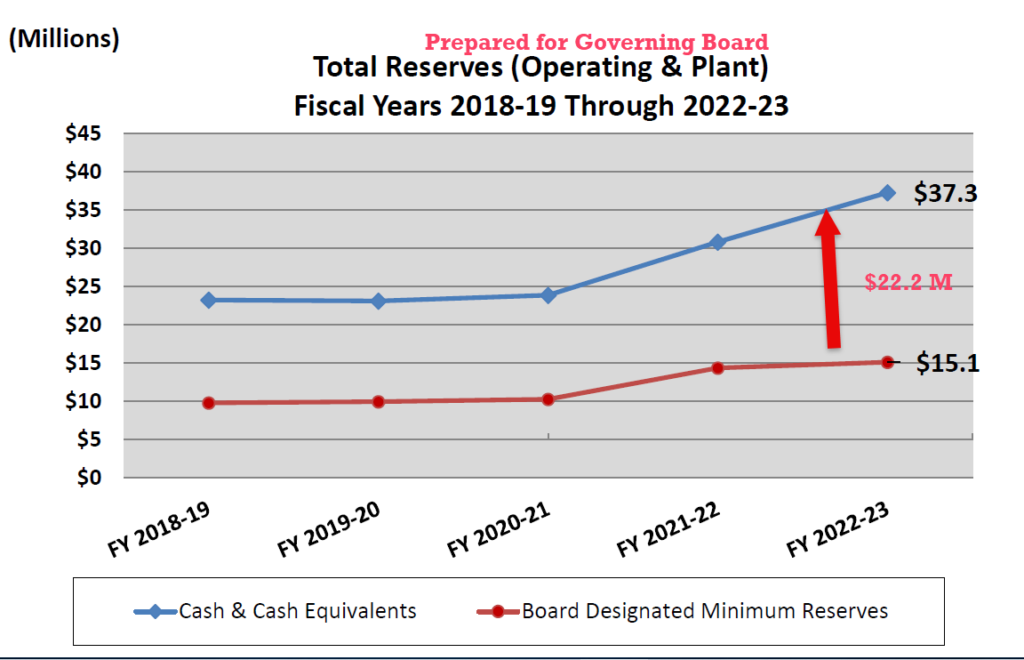Enrollment is now open for 15 seminars and workshops designed to introduce new actors to professional acting, and sharpen the skill set of actors already practicing the craft—faculty will include professional actors from Los Angeles—tuition for workshops is $25
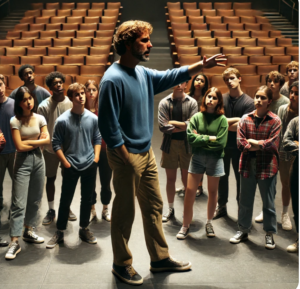 Yavapai Community College has been diligently developing its Performing Arts program on the Prescott Campus over the past few years. To further that development, it will hold “The Elevated Actor” Summer Actor Intensive training program from Monday, June 24, to Friday, June 28, at the Jim & Linda Lee Performing Arts Center.
Yavapai Community College has been diligently developing its Performing Arts program on the Prescott Campus over the past few years. To further that development, it will hold “The Elevated Actor” Summer Actor Intensive training program from Monday, June 24, to Friday, June 28, at the Jim & Linda Lee Performing Arts Center.
As part of the event, the College is hosting a team of television, film, and stage artists who will work with students throughout the week. With more than 15 seminars and workshops, “The Elevated Actor” is designed to introduce new actors to professional acting and sharpen the skill sets of those already practicing the craft.
The faculty includes Yavapai Community College Theatre Professor Nanette Hofer. Other professional talents lending their skills to the workshop include Groundlings veteran, television actor, and stand-up comedian Matt Conde; Webby award-winning writer/producer and improv comic Russ Gooberman; writer-producer Timothy Boissey; and writer/director Jonas Brenneman.
Sessions will cover acting studies and an auditioning workshop to help actors make a lasting impression. Students will learn different techniques for stage, film, television, and commercial acting. Improvisation and writing workshops are designed to help performers maximize their creative potential in every onstage moment.
“Elevated Actor” participants will conclude their week with a final showcase performance on Friday night, June 28, at 8 p.m. on the Performing Arts Center stage.
The cost of “The Elevated Actor” workshop is $25. Participants must be 16 or older and may attend any or all of the week-long sessions. For registration or additional information, please visit performingarts@yc.edu.

 Yavapai Community College has reported that high school students taking classes in one of its early enrollment programs account for over 30 percent of its total enrollment. According to the College, in 2023-2024 the total number of high school students taking Dual Enrollment, Concurrent Enrollment, and CTED classes was 2,141 (fall) and 2,124 (spring). This represents over 30% of the College’s total enrollment.
Yavapai Community College has reported that high school students taking classes in one of its early enrollment programs account for over 30 percent of its total enrollment. According to the College, in 2023-2024 the total number of high school students taking Dual Enrollment, Concurrent Enrollment, and CTED classes was 2,141 (fall) and 2,124 (spring). This represents over 30% of the College’s total enrollment. Yavapai Community College initiated the “Promise Scholarship Program” in 2019. This program reimburses students for any direct tuition costs not covered by federal, state, third-party, or college grants upon graduation. To qualify, students must complete their education within seven semesters.
Yavapai Community College initiated the “Promise Scholarship Program” in 2019. This program reimburses students for any direct tuition costs not covered by federal, state, third-party, or college grants upon graduation. To qualify, students must complete their education within seven semesters. Yavapai Community College has been experimenting with developing an Early College Academy (ECA). The ECA model involves high school students attending classes at one of Yavapai Community College’s campuses. The program allows high school students to register concurrently for college classes that count toward their high school graduation requirements. A high school staff member is housed on the appropriate Yavapai Community College campus to support and monitor student progress daily.
Yavapai Community College has been experimenting with developing an Early College Academy (ECA). The ECA model involves high school students attending classes at one of Yavapai Community College’s campuses. The program allows high school students to register concurrently for college classes that count toward their high school graduation requirements. A high school staff member is housed on the appropriate Yavapai Community College campus to support and monitor student progress daily. Yavapai Community College ranks #1 among Arizona Community Colleges in five categories, according to a fact sheet presented to the public and the District Governing Board in May. Here is how the College described its number one status by category:
Yavapai Community College ranks #1 among Arizona Community Colleges in five categories, according to a fact sheet presented to the public and the District Governing Board in May. Here is how the College described its number one status by category: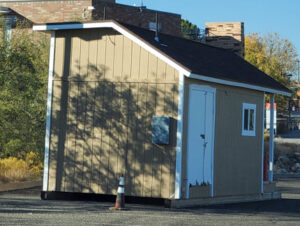

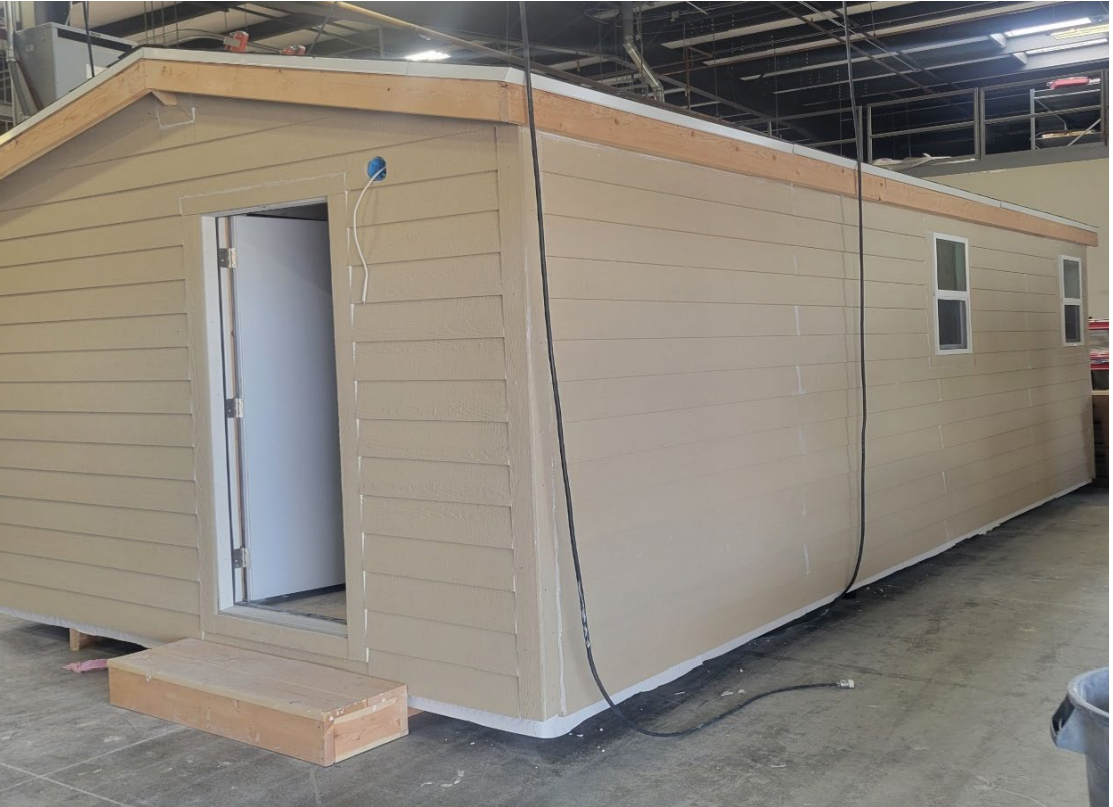
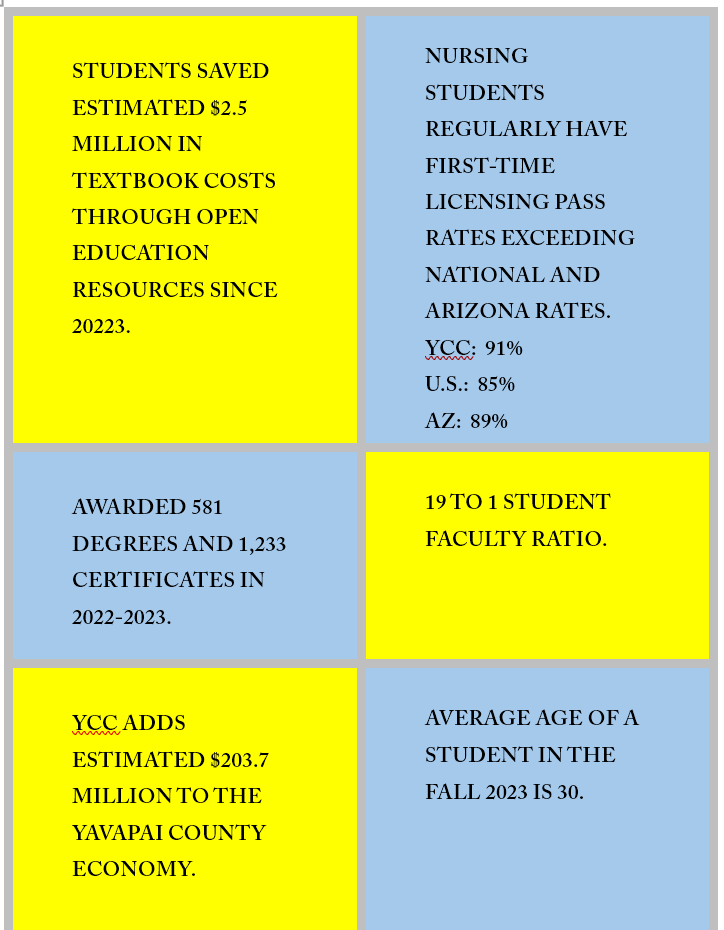
 Ray Sigafoos is the longest serving member of the Yavapai Community College District Governing Board with 18 years of service. He is running once again for the position in November.
Ray Sigafoos is the longest serving member of the Yavapai Community College District Governing Board with 18 years of service. He is running once again for the position in November. The Yavapai Community College Governing Board will hold what is described as a “Board Self-Assessment Workshop” on Tuesday, May 28, 2024, from 9:00 a.m. to 4:00 p.m. at the Rock House on the Prescott Campus. It is unclear what, if any, additional business will be conducted.
The Yavapai Community College Governing Board will hold what is described as a “Board Self-Assessment Workshop” on Tuesday, May 28, 2024, from 9:00 a.m. to 4:00 p.m. at the Rock House on the Prescott Campus. It is unclear what, if any, additional business will be conducted.